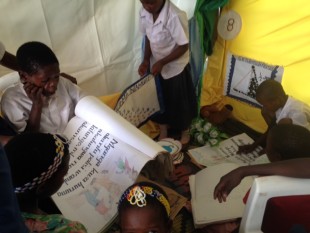
Education partnerships, and how to evolve and improve them, is one of the hot topics at the 2015 World Education Forum in Korea, where the mixed progress on the 2000 Education For All and Education Millennium Development Goals are being debated and a new post-2015 agenda is likely to emerge. In the spirit of partnership, I’m co-authoring this post with Lucinda Ramos of the Global Partnership for Education, who recently joined me and many other education stakeholders for Education Week, in Tanzania’s capital city, Dodoma.
The second annual Education Week - a new initiative of Tanzania’s Big Results Now programme - culminated in Dodoma’s stadium with a whole host of prizes for the best achieving students and most improved schools, being awarded by the Prime Minister and President of the nation. Accountability and transparency are increasingly on the agenda as part of the Open Government Partnership commitments, and fruits are already emerging such as the education dashboard, where any parent can zoom around a map interface to browse school performance and teacher deployment data.
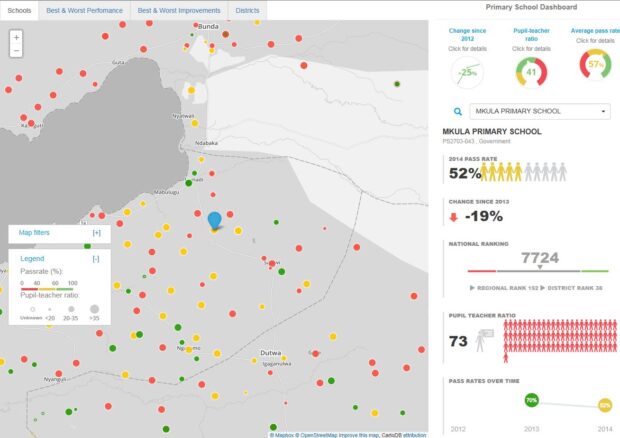
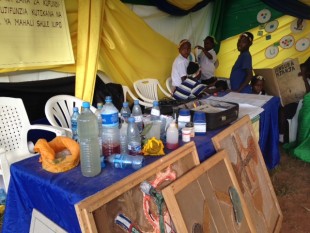
At the stadium, a range of stalls promoted public and private education initiatives, from Raspberry Pi computers and solar chargers, to Aeronautic degrees in China. A favourite was from Kongwe in Dodoma region, where do it yourself teaching aids were on display: children were engrossed reading homemade BIG BOOKS and I learnt how to make chemistry pH meters out of natural flowers, soda ash and lemon juice. The DFID EQUIP-T programme was providing robust motorcycles to local ward education officers as part of a quality enhancement monitoring initiative - the GPE financed LANES programme is intending to scale this around the whole nation.
We gathered at the huge, new, sprawling campus of the university of Dodoma for the annual Joint Education Sector Review meetings. It was really positive to hear of the huge teacher-training programme that LANES has started, orientating 5,000 teachers at a time on how to support literacy acquisition for new primary students. DFID EQUIP-T, USAID TZ-21 and UNICEF programmes are all involved in similar, complementary initiatives to cover the whole nation, and a new competency based, slimmed down curriculum and books are planned for delivery at scale later in the year.
We really got a palpable sense that Tanzania may be starting to turn the corner and address the problem: Schooling ain’t Learning to quote Lant Prichett and as the UWEZO learning assessments have graphically demonstrated. Over the MDG years, Tanzania has ambitiously expanded, doubling primary and tripling secondary enrolment. But shockingly poor 2012 examination results was one of the triggers to start Big Results Now, which included the ‘back to basics’ approach of 3Rs and initiatives on accountability, teacher motivation and remedial tuition.
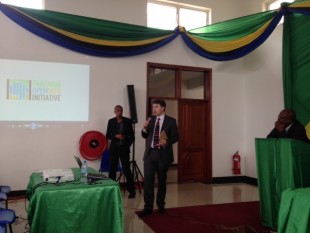
DFID and the GPE both emphasise the importance of data driven, long-term education plans as a pre-requisite to attain both an expansion of and quality in the basic education sector. The information presented for 2014 showed, for the second year in a row, declining enrolment rates in pre-primary, primary and secondary education. A key indicator, net enrolment in primary had dropped to 85% nationally and was reported as being over 10% lower than this in Kitavi and Kigoma in the west and in the Dar es Salaam conurbation on the coast.
We hope the recently appointed UNESCO IIEP team will assist Tanzania to develop a broad and balanced forward-looking plan. President Kikwete recently announced a further ambitious expansion of secondary education for the coming decade. However, measures to stop automatic promotion in secondary school for failing students has helped to boost pass rates, but limit the actual number of school graduates. The knock on effect of under-utilised lecture halls and dormitories was evident at the Dodoma University campus all around us.
Getting a phased expansion with most Tanzanian children completing a full cycle of basic education will need to start with greatly expanded access to pre-school education that is both vital and the most cost effective approach. Today’s three-year-old kids are the high school graduates of 2030 - the year being cited for the Sustainable Development Goals targets. We hope partnerships like the GPE that join developed and developing nations and other private bodies is part of the solution, for attaining both high quality and universal access to education may be just as elusive as the Holy Grail was in the ancient Arthurian legends of old!
-----------------------------------------------------------------------------------------------------------------------------------
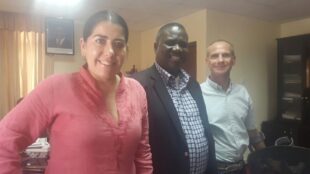
Biography Lucinda Ramos is a Country Lead at the GPE Secretariat, based in Washington DC since November 2014. Her role is to support countries such as Nicaragua, Zimbabwe, Timor-Leste and Tanzania in sector planning, sector dialogue and in engagement with the GPE processes. She has worked in France and Senegal with IIEP and UNESCO. She has also worked as Education Specialist with UNICEF Timor-Leste and Pakistan and as Chief of Education in Ghana.

Recent Comments